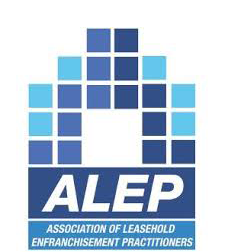Discharging or altering a Restrictive covenant
A restrictive covenant is a requirement, normally on the title of a property which restricts the owner from doing something. When it was first created, the restriction would be to the detriment of one owner and the benefit of another, often adjoining owner.
Many properties still have restrictive covenants on them which have little relevance. For example we have seen a number of land registry titles which prevent the running of sheep through what is now a residential property. Well, working on the assumption that you wouldn’t want to do that anyway, nobody is really bothered and the value of land is not affected. It also may be that whoever had the benefit of the restriction no longer owns adjoining land, let alone land that would benefit in the same way as originally intended.
The likelihood is that going back many years, the land where the house now stands may have been farm land. Perhaps and adjoining owner who sold the land didn’t want the running of his own farm interfered with.
However, there are restrictive covenants that are of more interest, where the whoever holds the land which is burdened by them wants the release / discharge of it or sometimes a modification.
Assuming for a moment that whoever has the benefit of the restriction can be traced, there would normally then be a commercial negotiation between the parties for the restriction to be discharged or modified by agreement. However, if agreement cannot be reached voluntarily, there is also the right for whoever has the burden to apply to the Tribunal for determination.
The valuation process is often misunderstood , with many incorrectly believing that the uplift in value to the burdened land is the primary factor, with it considering any ‘marriage value’. What should actually be considered is the loss in value to any retained land by whoever had the benefit of the restriction. This diminution of value is what needs to be assessed.
The reason for this is that if an application to Tribunal was made under Section 84 of the Law of Property Act 1925, it is this assessment that the Tribunal would make.
The tribunal can of course be an expensive and time consuming way of getting a restriction lifted. As such, commercially negotiated settlements are often still made by agreement. Both parties should be mindful of what is known as the Delaforce principle – that is that sometimes it is worthwhile paying a little too much or too little to avoid the cost and delay of going to tribunal. The relative negotiating strength of the parties and how deep their pockets are can come into play in a realistic commercially negotiated settlement.
The most relevant part of Section 84 reads-
84Power to discharge or modify restrictive covenants affecting land.
(1) The Upper Tribunal shall (without prejudice to any concurrent jurisdiction of the court) have power from time to time, on the application of any person interested in any freehold land affected by any restriction arising under covenant or otherwise as to the user thereof or the building thereon, by order wholly or partially to discharge or modify any such restriction on being satisfied—
(a)that by reason of changes in the character of the property or the neighbourhood or other circumstances of the case which [the Upper Tribunal] may deem material, the restriction ought to be deemed obsolete, or
that in a case falling within subsection (1A) below the continued existence thereof would impede some reasonable user of the land for public or private purposes or, as the case may be, would unless modified so impede such user; or]
(b)that the persons of full age and capacity for the time being or from time to time entitled to the benefit of the restriction, whether in respect of estates in fee simple or any lesser estates or interests in the property to which the benefit of the restriction is annexed, have agreed, either expressly or by implication, by their acts or omissions, to the same being discharged or modified; or
(c)that the proposed discharge or modification will not injure the persons entitled to the benefit of the restriction:
and an order discharging or modifying a restriction under this subsection may direct the applicant to pay to any person entitled to the benefit of the restriction such sum by way of consideration as the Tribunal may think it just to award under one, but not both, of the following heads, that is to say, either—
(i)a sum to make up for any loss or disadvantage suffered by that person in consequence of the discharge or modification; or
(ii)a sum to make up for any effect which the restriction had, at the time when it was imposed, in reducing the consideration then received for the land affected by it.
Regulated by the Royal Institution of Chartered Surveyors and with most of our reports provided within a week of instruction, you can rest assured that you are in safe hands with Websters Surveyors.
Our services span most of London and some surrounding areas including Hertfordshire, Buckinghamshire, Essex and parts of Surrey and Sussex.
Please contact us if you would like to discuss your requirements on 020 8017 1943.


